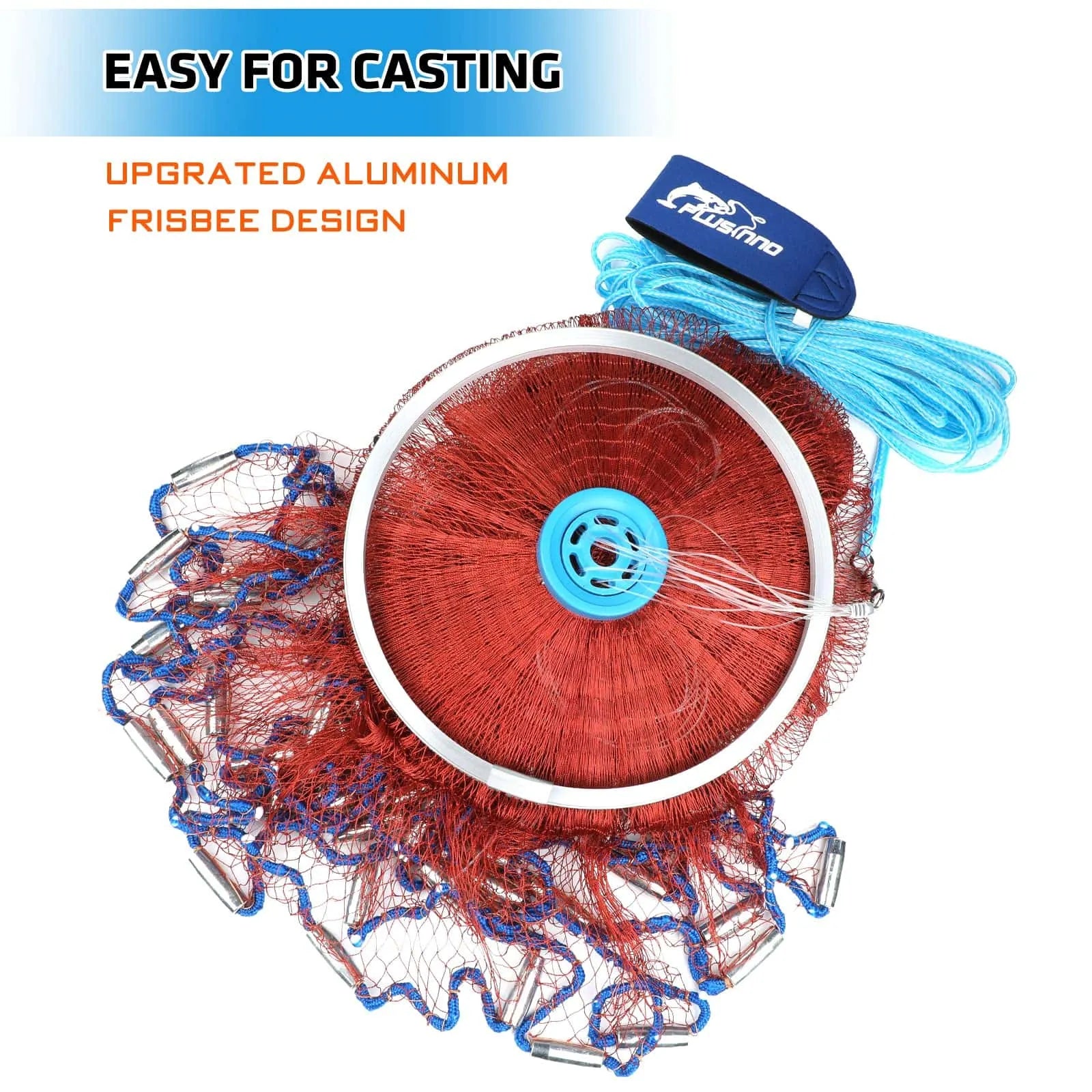Taking Sustainability Seriously: Eco-Friendly Practices with Cast Nets in Industry None
Body
Cast nets have long been used in the fishing industry as a traditional method for catching fish. However, with the growing concern for environmental sustainability, it is crucial to explore eco-friendly practices in the use of cast nets. By adopting sustainable techniques, we can minimize the negative impact on marine ecosystems and ensure the long-term viability of our fisheries.

The Importance of Sustainable Fishing
Taking sustainability seriously is essential for the future of our oceans and the communities that rely on them. Overfishing and destructive fishing practices have led to the depletion of fish stocks and the destruction of marine habitats. By implementing eco-friendly practices with cast nets, we can contribute to the conservation of marine biodiversity and the preservation of our oceans for future generations.
Reducing Bycatch
One of the key challenges in fishing is the unintentional capture of non-target species, known as bycatch. Bycatch can include endangered species, juvenile fish, and other marine organisms that are not intended for harvest. To address this issue, eco-friendly cast nets are designed with smaller mesh sizes and escape panels, allowing non-target species to swim out of the net. This reduces the impact on non-target species and helps maintain the balance of marine ecosystems.
Using Biodegradable Materials
Another important aspect of eco-friendly cast nets is the use of biodegradable materials. Traditional cast nets are often made of synthetic materials that can persist in the environment for hundreds of years. In contrast, eco-friendly cast nets are made from natural fibers such as cotton or hemp, which break down more easily and have a lower environmental impact. By using biodegradable materials, we can minimize the accumulation of plastic waste in our oceans and promote a more sustainable fishing industry.
Supporting Local Communities
Adopting eco-friendly practices with cast nets not only benefits the environment but also supports local communities that rely on fishing for their livelihoods. Sustainable fishing practices help maintain fish populations at healthy levels, ensuring a stable income for fishermen and their families. By promoting sustainable fishing methods, we can create a more equitable and resilient fishing industry that benefits both the environment and the people who depend on it.
Collaboration and Education
Creating a sustainable fishing industry requires collaboration and education. Fishermen need to be aware of the importance of eco-friendly practices and have access to training and resources to implement them effectively. Governments, NGOs, and fishing communities can work together to develop sustainable fishing guidelines, provide support for transitioning to eco-friendly practices, and raise awareness about the benefits of sustainable fishing. By fostering collaboration and education, we can build a more sustainable future for our oceans.
Conclusion
Taking sustainability seriously is crucial for the long-term health and viability of our oceans. By adopting eco-friendly practices with cast nets, we can minimize the negative impact on marine ecosystems, reduce bycatch, and support local fishing communities. It is essential that we continue to innovate and explore new ways to make our fishing practices more sustainable. Together, we can ensure a healthy and thriving ocean environment for generations to come.
References:
1. Example.com
2. Example.org
3. Example.net










Comments